8 Lessons from Life on the Road
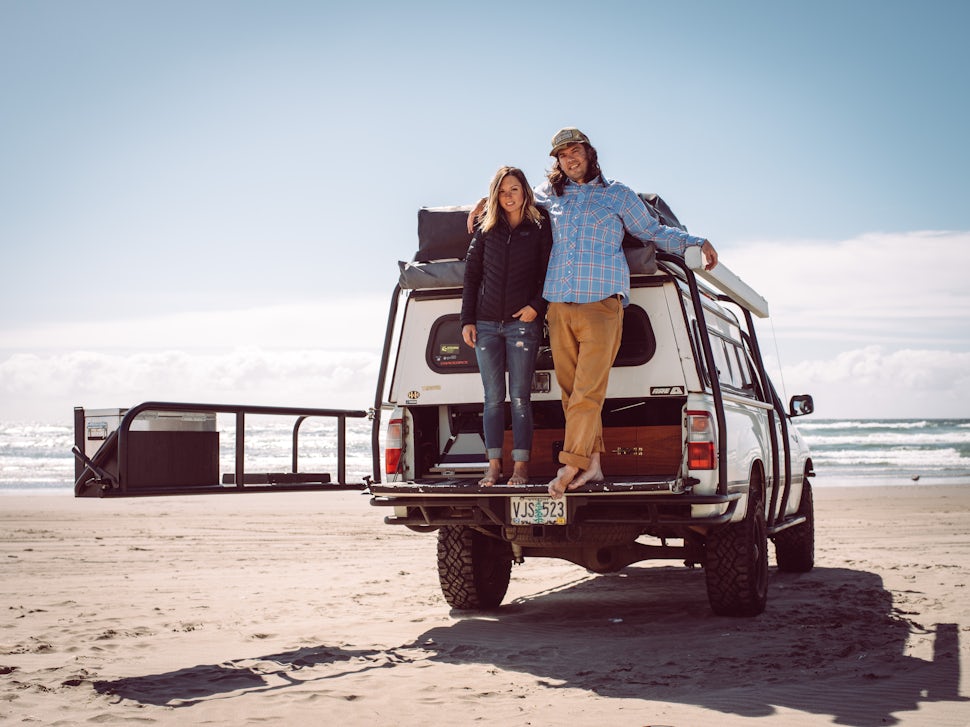
We chose to leave our daily grind and live in a truck. The road has chosen to teach us a few things along the way.
1. The East Coast is expensive.
This may not come as a surprise to most readers, but we were caught a little off guard. I grew up in Maryland but didn't do a ton of adventures until after I moved to the West Coast. Out West there is an abundance of public lands that we learned to utilize, and it really maximized our trip budget in regards to free or extremely cheap camping options.
Here on the East Coast there's a way higher population density that doesn't allow vast public lands of the same nature. The primitive or dispersed camping we have found is either already full, grossly misused, or packed with people looking to have a VERY different experience in nature than we are. We have had some amazing camp spots but generally they are in State or National Parks and cost upwards of $30/night. Couple that with gate or entrance fees and an uptick in cost for being out of state, and our budget of $50/day can get thrown out the window real quick.
Don't let this be a reason to not visit though, just do more research and adjust your budget accordingly so you are not disappointed. When you are standing on the summit of Mt. Lafayette while gazing over the vast expanse of the White Mountain National Forest, you wont be thinking about how it cost you $26 to camp at Franconia Notch.
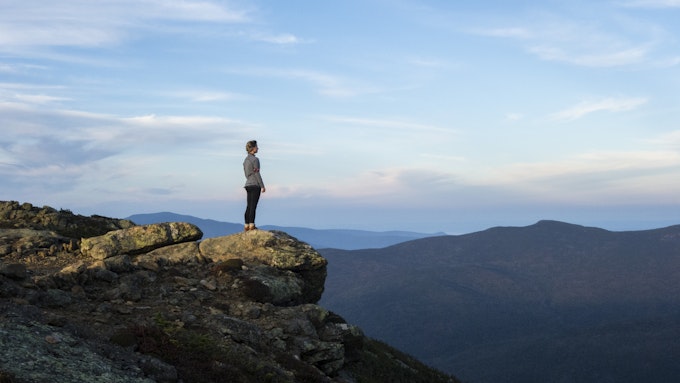
2. Bring a checkbook. Seriously.
This one seems really silly and may make me sound even older than I am, but hear me out. Every campground takes checks, every campground also charges different amounts of money in a seemingly random amount. So unless you love carrying a large assortment of random bills and small change then bring the checkbook along. Self Check-In kiosks don't give change, so when your campsite charges $13 and all you have is a $20 you will wish you had that checkbook.
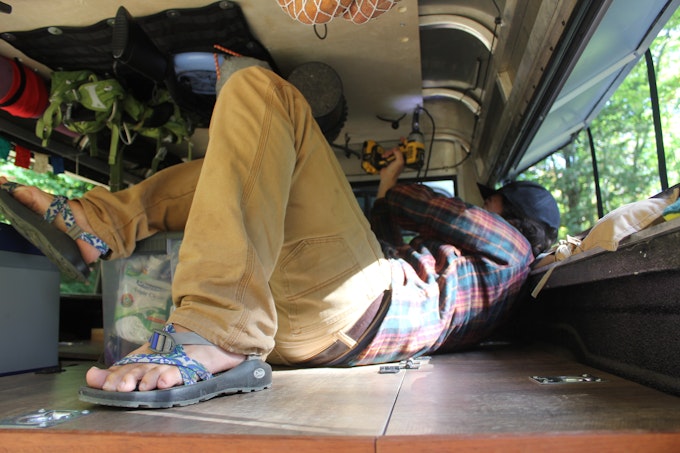
3. You've got all the time in the world.
This one took me a while to figure out. Back in my city life I would get up and rush to get to work, leaving my house in disarray which would just stress me or my partner out when we got home. I continued a bunch of those habits on our trip for the first few weeks until I had a revelation: there was literally nothing else pressing to do, or anywhere that we had to be, so why not use the time to take care of the few possessions we have?
If I need a piece of clothing at the bottom of a bin, I have plenty of time to pull everything out and then fold it all and put it back in nice and orderly. If something is bothering us in regards to how it is stored or organized then we take the time to change it, simple as that. Living in a vehicle or a backpack can be stressful enough, so give yourself a break and keep everything in a particular spot where you always know where it is.
If I need a fingernail clipper, the first aid kit, the black pepper, or a 19mm socket wrench, I know exactly where they are and where they need to go when I am done with them. There will be moments where time is important, like when you are rushing to get to the trailhead at 3:30AM, and if you don't have to search for anything you need then you are sure to get to the summit at sunrise as intended.
4. Don't overdo it on the vehicle amenities.
The most common pitfall I see people doing is spending ungodly amounts of money outfitting their vehicles to live in them. We spent about $10k on the truck itself, all maintenance, and everything we needed to have so we could sustainably use it as a rolling home. We don't have granite countertops, a queen sized memory foam bed, a 14' sea kayak, or other items that some of the more uber chic converted vans have.
We can do everything we need to do in our truck, from washing dishes to having a candlelit dinner for two, but nothing is overdone. While we do have some seemingly "glamorous" amenities like a 12V fridge and a rooftop tent, all of them get used daily and we couldn't do without them now. The less money you spend on outfitting your vehicle, the more money you can spend while traveling and the longer you can travel, because thats why we are doing this. Right?
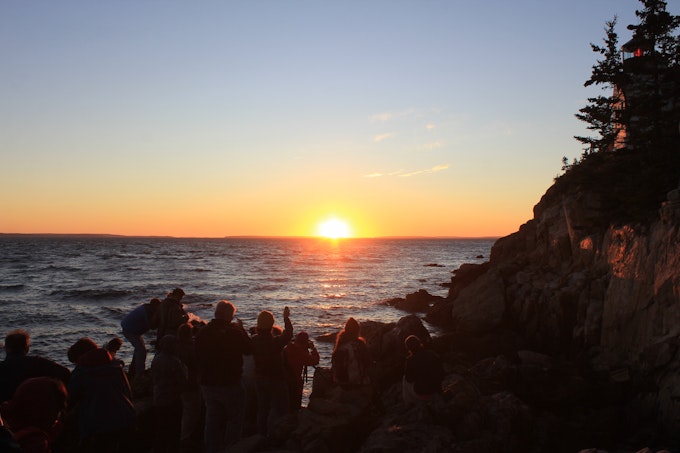
5. Everyone wants the same picture they saw on the internet.
We realized this one the hard way. It's about 90 minutes before sunset at Acadia National Park in Maine and we have it in our heads to make our way over to the Bass Harbor Head Light to watch the sun go down. Apparently everyone else in the park had the same idea. The parking lot fits about 20 cars and it wasn't full when we got there but there were about 80 cars lining the road when we had enough and finally left.
Mitch Cox is a travel photographer I admire a lot and he is often honest about how many people are jockeying for position with him to get the shot everyone sees on Instagram and in blogs. Once again, this isn't meant to sway or discourage you to go after said shot but just be prepared. If you are like us and aim to avoid crowds then there are a ton of places to watch the sunset and even more to watch the sunrise, it just takes a little more effort.
6. Have a backup plan.
Sometimes the primitive campsite you have been pining over turns out to have been someone else's plan as well. We try to get to sites as early as possible to stake them out, but sometimes that's just not in the cards, so we always try to have a Plan B. Plan B is generally not as awesome as Plan A, but in those moments where we have to initiate our backup plan, we remind ourselves that it's only one sleep in the scheme of countless nights of adventure. Other times the backup plan can turn out to be way better than the original and that's always a fun surprise.
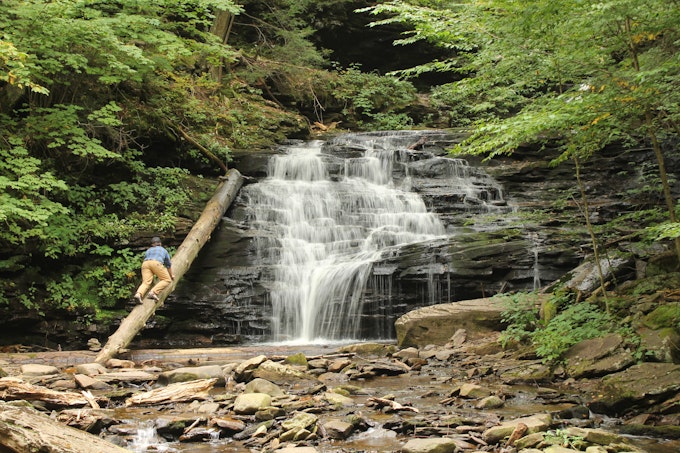
7. You are going to overpack.
Thats okay, we did too. After about 6 weeks on the road we planned on swinging through my parent's farm to drop off things we hadn't touched yet on the trip and it was a lot more than we imagined. You end up wearing the same things almost daily and kind of give up on trying to look a certain way. Layers are good, multifunctional clothes are better, and wool is your best friend.
8. Use the resources you have, when you have them.
This is a time and money saver in so many ways. Resources can be anything from a friend's couch to a town with multiple gas stations. When we are in a town we try and stock up on food because we don't want to buy it at the tiny market in the middle of nowhere with marked up prices. For groceries we hit the discount stores for package goods like canned food and beverages, then we go to farm stands or higher-end grocery stores for produce or proteins.
When we get the chance to use an actual kitchen we take full advantage by making our own granola bars or pasta sauce that we can stock away in the truck. We also use sites for housesitting and work trade gigs whenever we can. These gigs are great for saving a couple bucks as well as meeting new people who can shed a little more light on a community you may have passed over otherwise. Lastly, if you have a chance to shower or do laundry for free, take the opportunity because you don't always know when the next time will be.
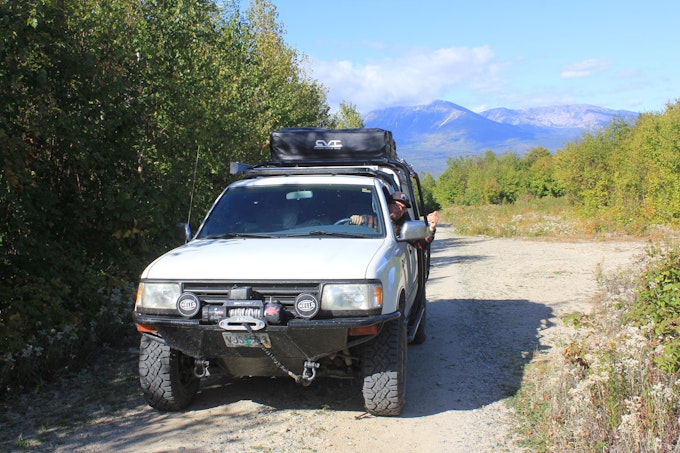
The road will teach us many more things during the course of this trip and that is half the fun of it. Learn from it and be willing to adapt, otherwise you wont get nearly as much joy in return. Have fun out there!
We want to acknowledge and thank the past, present, and future generations of all Native Nations and Indigenous Peoples whose ancestral lands we travel, explore, and play on. Always practice Leave No Trace ethics on your adventures and follow local regulations. Please explore responsibly!
Do you love the outdoors?
Yep, us too. That's why we send you the best local adventures, stories, and expert advice, right to your inbox.







